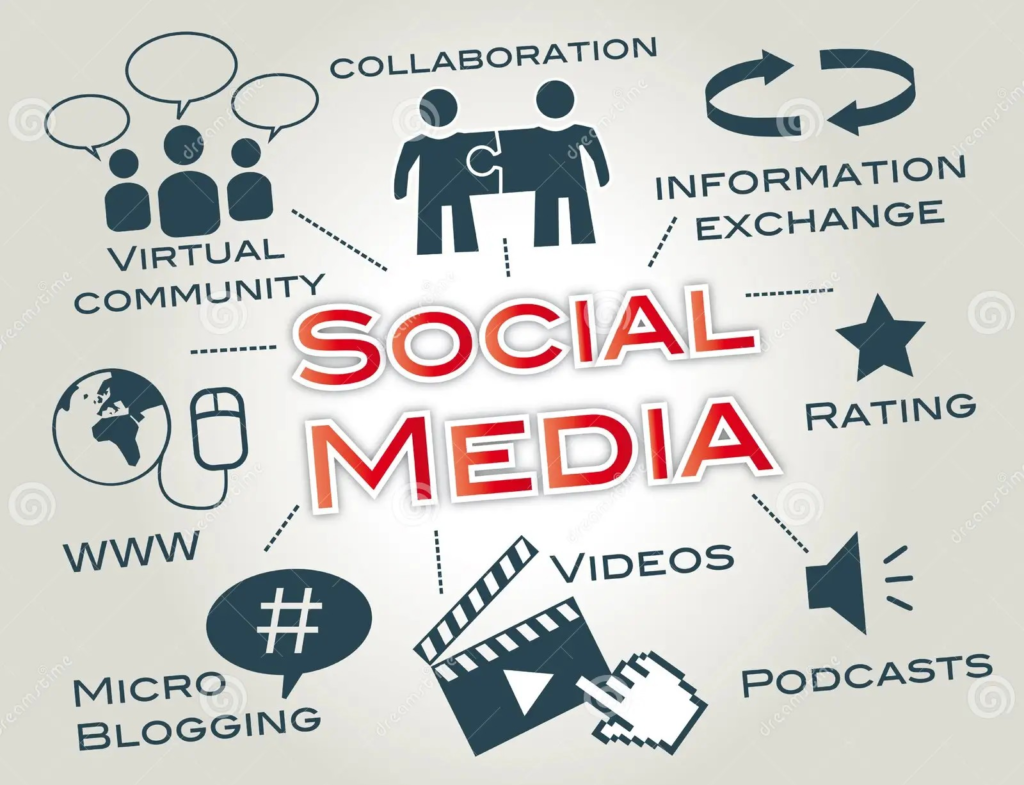How social media is becoming a new classroom?
In recent years, social media has evolved from a platform for sharing personal moments and entertaining content into a powerful educational tool. Influencers, once primarily seen as trend setters in fashion, beauty and lifestyle are now taking on the role of educators, exploiting their platforms to share knowledge, skills and valuable insights. This shift is reshaping how we perceive learning and engagement in the digital age. Let’s explore this transformation and its implications for education.

The rise of educational content on social media
As students and learners increasingly turn to social media for information, a new genre of content has emerged: educational influencers. These creators are using like platform like Instagram, TikTok, and YouTube to share knowledge in a more engaging and relatable way.

TikTok
It has become a hotbed for bite-sized educational content. Creators share everything from history lessons to science experiments in quick, entertaining clips. The #LearnOnTikTok movement has made it easier for users to find educational content that resonates with their interests. Influencers like @chemistryteacherphil make chemistry fun and accessible, helping students grasp complex concepts through humor and creativity.

YouTube
On You Tube, channels such as Robokalam and Khan Academy have paved the way for comprehensive educational series that blend entertainment with learning. These platforms offers in-depth lessons on a variety of subjects, making learning accessible to anyone with an internet connection.
Why are influencers turning to education?
1. Engagement: Influencers understand the importance of engagement. Traditional education can often feel rigid and impersonal. In contrast, social media allows for more conversational tone, making it easier, with the material and the educators.
2. Relatability: Influencers are often seen as more relatable than traditional educators. They share personal stories, experiences and failures, making their lessons feel authentic and approachable. This relatability can break down barriers and encourage learners to engage more deeply with content.
3. Accessibility: Social media platforms provide free access to educational content. Students can learn at their own pace, revisit lessons, and explore topics that interest them without the constraints of a traditional classroom settings. Accessibility democratizes educational, allowing anyone to learn regardless of their background.
4. Exploring Trends: Influencers are skilled at utilizing trends to reach their audience. By incorporating current events, popular culture, and relatable humor into their educational content, they can make learning more engaging and relevant.

Benefits of learning from influencers
1. Diverse Perspectives: Educational influencers are often come from various background and experiences, providing unique perspectives that may not be available in traditional curricula. This diversity enriches the learning experiences, allowing students to see topics from multiple angles.
2. Interactive Learning: Many influences promote a sense of community among their followers, encouraging discussions and interactions in the comments. This collaborative learning environment can enhance understanding and retention of information.
3. Real-World Applications: Influencers frequently share real-world applications of academic concepts, helping students understand how what they’re learning is relevant to their lives. This practical approach can inspire students to explore subjects in greater depth.

Challengers of Influencer Education
1. Misinformation: Unlike traditional educators, many influencers lack formal qualifications. This raises concerns about the accuracy and reliability of the information being shared. It’s crucial for learners to critically evaluate the content and verify facts from acceptable sources.
2. Lack of structure: Social media education often lacks the structured curriculum of traditional classrooms. While this flexibility can be beneficial, it may also lead to gaps in knowledge if students to do not actively seek out comprehensive resources.
3. Oversaturation content: With the vast amount of content valuable content it can be overwhelming for students to shift through and find high quality educational material. Not all infuencers prioritize educational integrity, making it essential for learners to be discerning in their choices.

Navigation the New Educational Landscape
As the role of influencers in education continues to grow, its important for students, parents, and educators to navigate this new landscape thoughtfully. Here are some tips for making the post social media as learning tool:
1.Follow creditable educators: Look for influencers who have a background in the subject matter they are teaching. Check their credentials and the sources their reference to ensure they provide accurate information.
2. Engage with the content: Take an active role in your learning by asking questions, participating in discussions, and sharing your insights in the comments. Engaging with the content helps reinforce with you’ve learned.
3. Supplement with traditional resources: While social media can be a valuable learning tool, it’s essential to complement it with traditional educational resources such as textbooks, online courses and academic articles for a well rounded understanding for subjects.

Conclusion:
The transition from influencers to educators marks a significant shift in how we approach learning in the digital age. Social media has the potential to make education more accessible, engaging, and personalized, but it also requires a discerning eye. By embracing this new educational landscape and navigating it thoughtfully, students can harness the power of social media to enrich their learning experiences and prepare for an ever-evolving world.
As influencers continue to break down the barriers of traditional education, the classroom of the future may very well exists within the palm of our hands embrace the opportunity to learn from those who are not just shaping trends, but also shaping minds.
